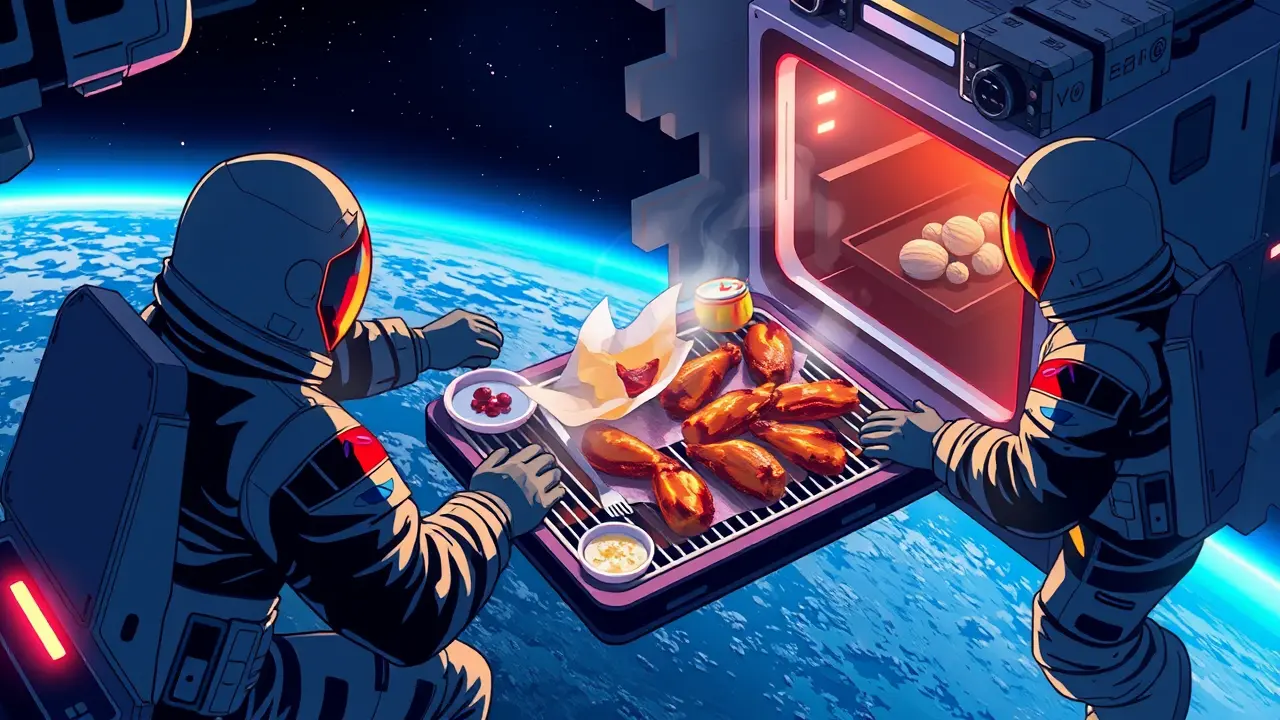
Sciencespace & astronomyNASA Missions
Chinese Astronauts Share First Space Station Barbecue During Crew Handover
TH
Thomas Green
6 hours ago7 min read6 comments
In a remarkable display of human ingenuity and cosmic domesticity, the Chinese space station recently hosted an orbital barbecue that transcended mere sustenance, serving as a powerful symbol of technological prowess and crew camaraderie during a critical handover period. The event, featuring freshly baked chicken wings and black pepper steak prepared in a hot air oven brought by the incoming Shenzhou-21 crew, represents a quantum leap in the quality of life for taikonauts, moving beyond the era of rehydrated tubes and paste-like foods that characterized early space missions.This culinary breakthrough, however, was shadowed by the delayed return of the three outgoing astronauts, a precautionary measure necessitated by a suspected small debris strike—a stark reminder of the perilous environment of low Earth orbit where even a paint fleck traveling at 17,500 miles per hour can compromise station integrity. The juxtaposition of this intimate meal-sharing moment against the backdrop of space debris concerns creates a narrative worthy of Arthur C.Clarke, where humanity's highest aspirations must constantly navigate the unforgiving physics of the cosmos. China's Tiangong station, now a permanent outpost orbiting approximately 240 miles above Earth, has been steadily evolving its living conditions with innovations that recall the incremental improvements seen aboard the International Space Station, from advanced life support systems to psychological support mechanisms like this shared meal.The hot air oven itself represents a significant engineering achievement, designed to function safely in microgravity where convection doesn't operate as on Earth, requiring clever solutions to prevent food particles from floating into sensitive equipment. This development mirrors similar advancements aboard the ISS, where NASA introduced an oven for baking cookies in 2019, though the Chinese implementation appears focused on practical meal enhancement rather than novelty baking.The six taikonauts sharing this meal—the largest crew complement yet aboard Tiangong—represent China's accelerating space ambitions, which include plans for a lunar base and eventual Mars missions, where such quality-of-life innovations will become increasingly critical for mission success during extended durations far from Earth. The debris incident that prompted the extended stay underscores the growing challenge of orbital congestion, with over 130 million pieces of debris currently tracked by space agencies worldwide, creating a shooting gallery that threatens all orbital assets regardless of national origin.This event occurs as China positions itself as a major space power, with plans to expand Tiangong and potentially host international astronauts, much like the collaborative spirit that built the ISS, though geopolitical tensions have thus far limited such cooperation. The psychological importance of shared meals in isolation environments—well-documented in Antarctic research stations and submarine missions—cannot be overstated for crew cohesion and mental health during long-duration spaceflight, making this barbecue far more significant than a simple menu upgrade. As private space stations loom on the horizon and lunar Gateway construction advances, these lessons in combining technical capability with human factors will prove invaluable for the next era of space exploration, where the ability to share a properly cooked meal millions of miles from home may prove as crucial as any rocket equation.
#featured
#Chinese space station
#Shenzhou-21
#astronauts
#space debris
#orbital living
#handover ceremony
#space food
Stay Informed. Act Smarter.
Get weekly highlights, major headlines, and expert insights — then put your knowledge to work in our live prediction markets.
Related News
© 2025 Outpoll Service LTD. All rights reserved.
